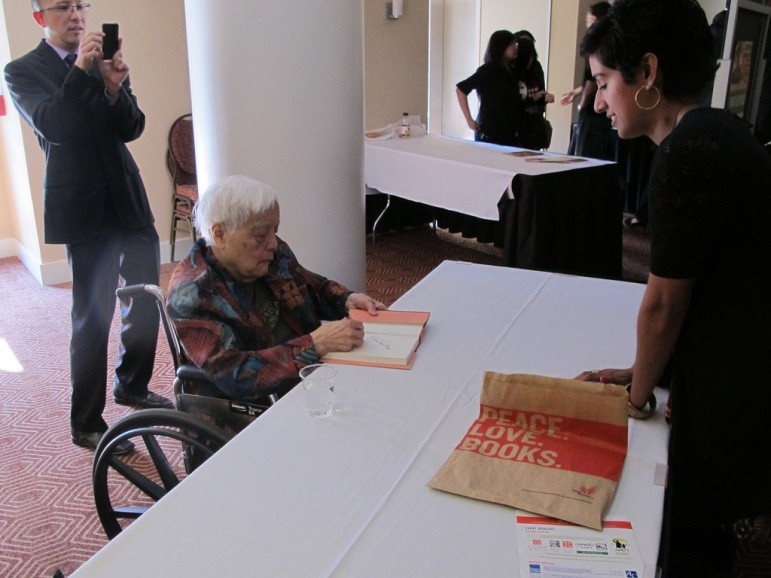
October 5, 2015; NBC News
Amidst all the PR firm hype that elevates some in the nonprofit sector to unwarranted fame, there are some real heroines and heroes to be celebrated. One died this week—Detroit civil rights activist Grace Lee Boggs, who passed away at age 100.
Born in Rhode Island in 1915, raised in Jackson Heights in Queens, New York, and having earned a degree from Barnard College in 1935 and a PhD from Bryn Mawr in 1940, Grace Lee moved to Detroit in 1953 and married autoworker and activist James Boggs. She and her husband became high profile Detroit activists. In the words of Robert McFadden of the New York Times, Grace Lee Boggs became a ”prominent symbol of resistance to the spreading blight“ that enveloped Detroit over the past few decades.
So many activists in our history are narrowly focused, but not Grace Lee and James Boggs. According to NBC News, they were “active in [the] tenants rights, labor, civil rights, Black Power, women, and environmental justice movements. Among her major accomplishments were helping to organize the 1963 march down Woodward Avenue with Martin Luther King, Jr. and the Grass Roots Leadership Conference with Malcolm X.” The Times noted that “she founded food cooperatives and community groups to support the elderly, organize unemployed workers and fight utility shut-offs.” Boggs and her husband established the Detroit Summer program for youth, the James and Grace Lee Boggs Center to Nurture Community Leadership, and the James and Grace Lee Boggs School.
Sign up for our free newsletters
Subscribe to NPQ's newsletters to have our top stories delivered directly to your inbox.
By signing up, you agree to our privacy policy and terms of use, and to receive messages from NPQ and our partners.
The news coverage of Boggs seemed to emphasize her education in philosophy and her attachment to Kant and Hegel, particularly the dialectical analysis of Hegel, as though that was what led her into this amazing range of activism. Perhaps, but linking King, Malcolm X, labor issues, women, environmental justice, food coops, and youth, it adds up to her view of an ecosystem of what is necessary for a community to fight for its own survival and advancement.
That ecosystem approach shows in unusual ways. For example, the James & Grace Lee Boggs School is a K–6 charter school, but unlike so many, it is managed by a local nonprofit educational management organization and its staff are union members. On the webpage of the James and Grace Lee Boggs Center to Nurture Community Leadership are stories about women’s issues, a free concert, fighting foreclosure, urban farming (grapeseed), Detroit’s continuing water shutoffs, and youth dialogues. To Grace Lee Boggs and her acolytes, it is all part of a picture.
Until the newspaper went out of business less than a year ago, Grace Lee Boggs was a regular columnist for the Michigan Citizen. In one column from 2010, when she was nearing her 95th birthday, she explained a core part of her philosophy in light of her meeting her future husband in 1952. “Listening to and learning from this rank and file black worker, I resolved to become the kind of leader who is constantly learning from and encouraging the grassroots,” she wrote. “Carrying out this resolve is what has kept me going all these years.”
The title of her article? “Deepen Democracy—or Lose It.” In it, Grace Lee explained the essence and importance of grassroots democracy, in a manner that should be taken to heart by all of us.—Rick Cohen










